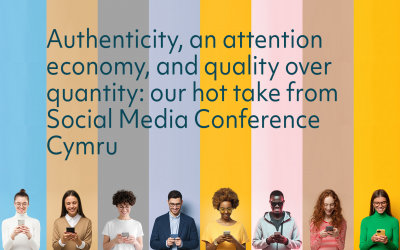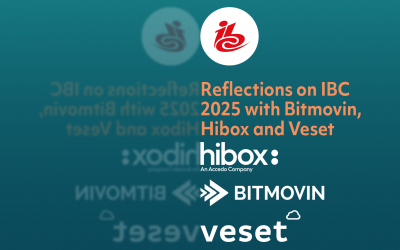Chances are you’ve come across the term Agentic AI in recent months, it seems to be everywhere at the moment, and was certainly one of the new trending terms that kept popping up at IBC. Yet while a lot of tech engineers are mentioning it, most of us mere mortals probably don’t really understand what it is and how it is different to other types of AI. To try and shed some light on the topic, we tackled Agentic AI in the latest Radical Moves Broadcast Unscripted podcast, looking at what it means and what role it may take in the M&E industry. We were fortunate to have a great line of speakers in Jacob Arends, Senior Product Manager, Bitmovin, Tommy Flanagan, Editor, Faultline, and Bleuenn LeGoffic, VP Business Transformation, Accedo.

Ros Woodcraft
Content Writer, Radical Moves Ltd
Understanding Agentic AI
So, what is Agentic AI exactly and how does it differ from other AI? As Bleuenn explained, software up to now has been fairly prescriptive, built around defined rules and API calls. While AI enables large datasets to be analysed, Generative AI introduces another layer, making systems less prescriptive, easier to interact with and more able to adapt based on context. Agentic AI goes even further, creating software agents that can be set a goal, given access to data, and left to figure out how best to achieve it. These agents aren’t confined to strict trees of “if this, then that” logic. They have the permission to act autonomously, and can adapt, self-optimise, and even communicate with other agents through protocols like MCP, removing the need for rigid integrations. In practice, this could mean agents monitoring user experience, flagging issues in real time, and coordinating with other agents and systems to resolve them.
Tommy was quick to point out that with its potential workforce implications, Agentic AI could well be a turning point for how we fundamentally think about labour itself. He noted NVIDIA CEO Jensen Huang’s description of a future where every IT department is like the HR department for AI agents, which sees IT teams worldwide onboarding agents and keeping them in check. That might sound dramatic, but it raises real questions about how tasks, responsibilities, and trust in automation will evolve.

Are we ready to trust AI?
As Jacob said, it’s just a fine line between today’s AI workflows and fully agentic ones. He gave the example of an ad placement workflow using AI tools to analyse scenes to work out the best place to place an ad. If the service provider takes that information and uses it to insert SCTE Markers as part of VOD encoding workflow, that is an AI workflow. Whereas if AI agents were to connect directly with the VOD encoder and ask it to add SCTE Markers, that is an agentic workflow. It’s a subtle but important shift, and one that highlights the trust question, are we ready to let AI take the wheel in critical workflows?
Bleuenn saw it as less about replacing human effort and more about finally being able to scale ambitions. Media services often know what a great user experience looks like but struggle to deliver consistently across platforms and partnerships because of the challenges around adapting service in real-time. Agentic AI, in her view, could help break those limitations by automating tasks that simply exceed human bandwidth. She also pointed to future shifts in procurement, where the pace of technology adoption will accelerate, bringing the lengthy RFP cycle to an end.

Learning from other industries
The panel also compared media’s progress with other sectors. Gaming, for example, is already deploying AI agents widely, from dynamic gameplay to automated testing. E-commerce, too, has a head start thanks to its detailed understanding of customer journeys. For media, catching up means rethinking data strategies and exploring more interactive, personalised, and context-aware experiences for viewers.
Of course, trust and adoption remain sticking points. As Tommy highlighted, many vendor announcements still lack real case studies. The proof will be in the pudding as to whether this is going to change anytime soon. That said, there was also a sense of optimism, agentic AI opens possibilities media companies have long wanted but have struggled to deliver, from smarter ad targeting and hyper personalisation to more responsible content handling.
It was a truly fascinating discussion, and we could have carried on far past our allotted time. The technology is clearly moving fast, and I think it’s fair to say that if the last six months are anything to go by, Agentic AI is not just another passing buzzword but rather is a genuine shift in how media technologies may be designed, bought, and put to work.




